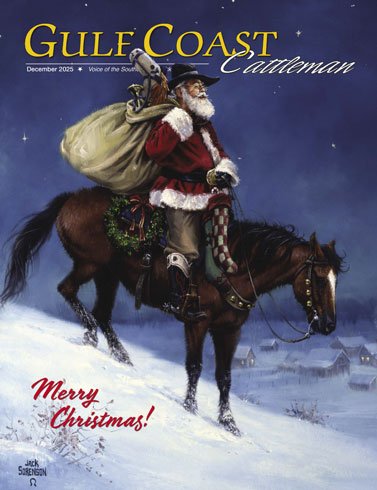Covid-19 Brings Disruptions to all Segments of Beef Industry
by: Martha Hollida Garrett
It was not that long ago that life was normal, but Covid 19 has changed that and caused major disruptions to our lives and our businesses. All segments of the beef industry have been forced to make changes in the past two-three weeks and at press time, Covid 19 is still escalating and spreading throughout our country.
Agriculture was included in the Homeland Security’s Essential Indus-try ruling issued on Mar. 19, which allows our industry to continue to do business—but we’re doing business differently and amid a changing financial picture.
Local auction barns have adjusted by limiting crowds, as many are asking sellers to bring their livestock and drop them off without ever leaving their vehicle. Many are only allowing buyers to be in the seats. Sale barn cafes, often a hub in the community, are adhering to rules in place locally for take-out only or just closed. In addition, many are asking sellers to receive their payment in the mail or to return to the barn, stay in their vehicles and checks will be brought to them.
The Livestock Market-ing Association (LMA) which represents member barns has issued a number of suggested strategies, including sanitary procedures for barn facilities. Barn owners have been asked to instruct any em-ployee or visitor exhibiting symptoms of illness to remain home.
In a statement released by LMA it said in part, “Livestock market auctions are essential to maintaining infrastructure and food supply, as well as access to capital for the thousands of farmers and ranchers who depend on livestock auction market to sell their cattle.”
The purebred segment has also been affected greatly, as Covid 19 arrived in the height of sale season across the country, including registered bull sales with large numbers selling.
Sale managers and seedstock producers have been scrambling to make decisions about hosting sales as social distancing, shelter-in place and crowd size rulings were being issued.
San Antonio based sale manager and auctioneer, Anthony Mihalski has seen his sale lineup change drastically as some have been cancelled, some postponed with a new date and some still trying to decide a new date.
“It’s challenging. Right now we just don’t know what’s ahead and when a safe date is. It’s also challenging to estimate what size of crowd you might have if you go forward with your sale date and you have to take into consideration the health impact of gathering people in a location, as well as accommodations and serving a meal,” he said.
Mihalski also pointed out that many breeders set their budgets and financial commitments around these key marketing events.
“Some cattle can be held by some breeders, but many need to move them now. There are also challenges concerning the offering. For example the National E6 Beefmaster Sale is set for Apr. 26th and traditionally the pairs sell open, so the new owners can breed them back to their liking. If we postpone that sale, then do the consignors need to go ahead and breed them? These are just some of the real life scenarios we’re working through,” he explained, adding that he has spent 50 years in the purebred marketing segment and has never seen anything disrupt at this magnitude.
Joe Lichtie, Superior Livestock Auction vice-president, has seen their numbers of online bidders greatly increase for their purebred sales as Covid 19 continues.
“We are seeing not only increased numbers of potential bidders, registering but also a great influx of first time users of the online process. We offer bidding through our click to bid computer program, and by calling in and being on the phone with an experienced staff member,” he describes adding that for the first time bidder, the phone-in option provides a great comfort level and gives them confidence in utilizing the technology.
Lichtie says many are taking advantages of both avenues as they are concerned about the virus and the travel related to attending sales. Cattlemen have found it safer to bid from their own home as many fall in the most vulnerable age group. In addition, Lichtie points out that the crowds have been greatly reduced at most events and the online marketing has been crucial to sellers’ bottom lines.
“Almost without exception, we are seeing the number of buyers registering for the sale double or go even higher and the bidding and buying online with Superior is falling along that same percentage.
Wade Fisher, owner of Ideal Video Productions and contractor with DV Auctions says that he experienced nine sale cancellations and 11 postponements in four days for sales in primarily Texas. These sales were all scheduled between Mar. 21st-Apr. 18th.
“When all the guidelines, recommendations and rulings started coming down, people began reacting and adjusting. But I have had sales and they have been strong. I would say the crowd is probably like 60% of normal. DV is seeing a lot more registered buyers and many are doing it for the first time,” he explained adding that DV developed a tutorial video for their potential buyers to assist them with computer bidding and buying.”
He also said that the number of lots purchased online is running about double for all the sales he has contracted for DV and that trend is across the board for sales that DV Auction is broadcasting.
Source: Southern Livestock Standard

